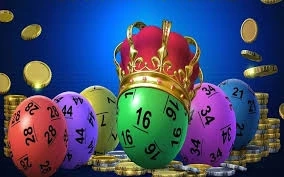Exploring the Enigma of Satta King: A Game of Chance and Controversy
Introduction
Satta King is a term that rings familiar to many, especially in the Indian subcontinent. This underground lottery-style gambling game has been a part of the Indian cultural landscape for decades, offering participants the chance to test their luck and win big. While it has attracted a significant following, Satta King is shrouded in controversy and legal ambiguities, making it a topic of interest and debate. In this article, we will delve into the world of Satta King, its history, rules, and the ongoing debates surrounding its legality and impact on society.
A Brief History
Satta King's origins can be traced back to the pre-independence era in India. It was initially known as "Satta Matka," which translates to "betting on numbers." The game involved participants placing bets on the opening and closing prices of cotton on the New York Cotton Exchange. Over time, the game evolved to include different forms of gambling, including betting on the luck of numbers drawn from a matka (a pot). These numbers would be used to determine the winners.
The game became increasingly popular, with syndicates and bookies facilitating the bets. Despite multiple attempts by authorities to regulate and ban Satta Matka, it continued to thrive in the shadows, giving rise to a parallel gambling culture.
The Rules of Satta King
Satta King operates on a relatively straightforward set of rules. Participants choose a number between 00 and 99 and place their bets on it. The winning number is determined through a random draw process, usually held at specific times, often daily. The results are typically displayed on dedicated websites and through other mediums, allowing participants to check if they have won.
Winners receive a fixed payout based on the odds associated with their chosen number. For example, if a player bets on a number and it is drawn, they can win up to 90 times their initial bet. The simplicity of the game's rules and the prospect of substantial winnings have contributed to its widespread appeal.
Controversies Surrounding Satta King
Despite its popularity, Satta King has faced numerous controversies and legal challenges over the years. Here are some of the main issues:
Legal Ambiguity: Satta King operates in a legal gray area. While some states in India have banned or regulated gambling, others have not taken any specific action against it. This ambiguity has allowed Satta King to persist and thrive in some regions.Social Impact: Critics argue that Satta King has a detrimental impact on society. The game can be highly addictive, leading to financial ruin for some participants. Families can suffer from the consequences of gambling addiction, including financial instability and social issues.Organized Crime: The underground nature of Satta King has made it susceptible to involvement by organized crime groups. Syndicates and bookies often operate the game, and this can lead to illegal activities such as money laundering and violence.Financial Loss: For many participants, Satta King is a form of escapism with the allure of quick riches. However, the odds are heavily stacked against the players, and the majority experience significant financial losses.Conclusion
Satta King remains a highly debated topic, and opinions on its legality and social impact vary widely. While some see it as a form of harmless entertainment and an opportunity to test one's luck, others view it as a societal menace. The game's historical roots, simple rules, and potential for significant financial gains continue to attract participants, ensuring that it remains a significant part of India's underground gambling culture.
It is important to recognize that the legal ambiguity and potential for harm associated with Satta King are significant concerns. Authorities and policymakers continue to grapple with how to address this issue effectively. Ultimately, the future of Satta King may depend on the evolving legal landscape and the extent to which society can address the concerns it raises while respecting individual choices and freedom.



